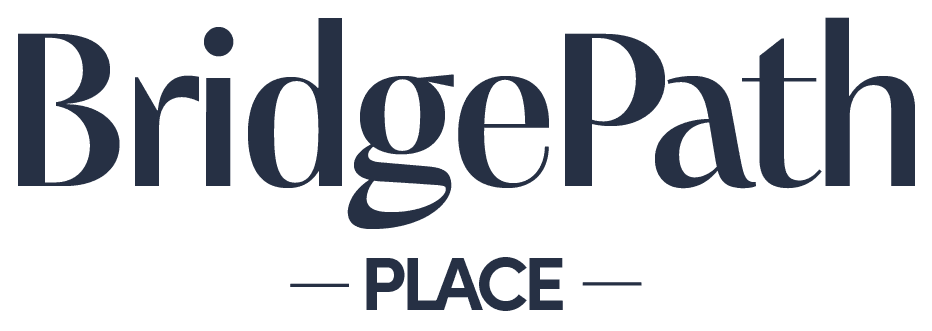
Struggling with substance abuse can feel like an insurmountable challenge, but seeking drug and alcohol counselling is a crucial step towards lasting recovery. This type of counselling provides the tools and guidance necessary to address the root causes of addiction, while promoting healthier habits and a better quality of life.
Local counselling services are vital in this journey, offering accessibility, personalised care, and a sense of community. Whether through one-on-one therapy, group sessions, or family counselling, nearby options ensure comprehensive support tailored to individual needs. Embracing these resources can pave the way for a brighter, addiction-free future.
What is Drug and Alcohol Counselling
Drug and alcohol counselling is a structured, evidence-based approach that helps individuals overcome substance abuse. Counsellors work with clients to identify triggers, develop coping strategies, and address underlying emotional or psychological challenges.
How It Works
Counselling goes beyond abstinence, focusing on building a balanced and sustainable lifestyle. Techniques like Cognitive Behavioural Therapy (CBT) help clients modify harmful behaviours, while Motivational Interviewing (MI) encourages positive change.
Treatment plans are tailored to each person’s unique history and challenges, ensuring a personalised approach. Counsellors often incorporate family and group sessions to strengthen support networks and foster accountability.
Collaboration with Other Professionals
Drug and alcohol counsellors frequently collaborate with healthcare providers to ensure holistic care. This integrated approach addresses both the physical and mental aspects of addiction, enhancing the chances of sustained recovery.
Benefits of Local Counselling Services
Local counselling centres offer numerous advantages that make the recovery journey more accessible and effective.
Accessibility and Convenience
Proximity to counselling services reduces travel time and associated costs, making it easier to attend sessions consistently. This convenience supports regular engagement, which is essential for maintaining progress.
Community Support
Engaging with local counselling fosters a sense of belonging and accountability. Shared experiences in group settings provide motivation and empathy, creating an environment conducive to healing and resilience.
Tailored Recommendations
Counsellors with knowledge of local resources can connect clients to support groups, healthcare providers, or employment programmes, ensuring comprehensive care within the community.
Finding the Right Counsellor Near You
Choosing the right professional is key to successful recovery.
Qualifications and Experience
Look for counsellors with certifications like Licensed Professional Counsellor (LPC) or Certified Alcohol and Drug Counsellor (CADC). Experienced professionals specialising in addiction therapy can provide tailored and effective support.
Types of Therapy Offered
Finding the right therapy is essential for a successful recovery journey. Below are some of the most effective and widely offered types of therapy, designed to address various aspects of mental health and substance use challenges.
-
Cognitive Behavioural Therapy (CBT)
CBT is a practical, evidence-based approach that helps clients identify and change negative thought patterns and behaviours. Therapists work with clients to develop healthier coping mechanisms and challenge unhelpful beliefs.
- Rational-Emotive Behavioural Therapy (REBT): A form of CBT that focuses on addressing irrational beliefs and emotional responses, helping individuals replace them with more rational, constructive thoughts.
-
Dialectical Behaviour Therapy (DBT)
DBT is a specialised form of therapy aimed at helping individuals regulate emotions, build interpersonal effectiveness, and tolerate distress. Initially developed for borderline personality disorder, it is also effective in addressing substance use, self-harm behaviours, and co-occurring mental health conditions.
-
Motivational Interviewing (MI)
MI is a client-centred approach that encourages individuals to explore their ambivalence about change. By focusing on the client’s own values and motivations, this method builds internal commitment to quit unhealthy behaviours, such as alcohol or drug use.
-
Contingency Management (CM)
CM uses positive reinforcement to encourage healthy behaviours and sobriety. Clients earn rewards, such as vouchers or privileges, for achieving milestones like maintaining sobriety or attending therapy sessions. This approach has been particularly effective in treating substance use disorders.
Success Stories and Testimonials
Real-life accounts highlight the transformative impact of professional counselling.
Personal Transformations
John, a former addict, credits his recovery to CBT and group therapy, which helped him rebuild his relationships and maintain sobriety.
Sarah shared how attending a local counselling programme reduced barriers to consistent treatment, fostering a sense of accountability and resilience.
The Role of Community
Many testimonials emphasise the importance of community support. Participants often express gratitude for the connections formed in group therapy, which provide encouragement and reduce feelings of isolation.
Conclusion
Drug and alcohol counselling offers a pathway to recovery by addressing the root causes of addiction and building healthier habits. Local services enhance this process by offering accessible, personalised care and fostering community engagement. With evidence-based techniques like CBT and MI, and options such as family and group therapy, individuals can find the support they need for lasting change.
By exploring cost and insurance options, recovery becomes more attainable. Success stories remind us that with the right guidance, overcoming addiction is not just possible—it’s life-changing. Take the first step today and discover how nearby counselling services can transform your future.
Your Journey to Recovery Starts Here with BridgePath Place
Experience the ultimate in luxury rehab at BridgePath Place, where bespoke treatment plans meet world-class care. Located in the heart of London, our private and serene environment offers exclusive, tailored solutions for addiction, mental health, and disorders. With unparalleled facilities and a team of leading specialists, we ensure a completely confidential and personalised recovery journey.
Visit BridgePath Place to explore our treatments or schedule a consultation today. Reclaim your life in comfort and privacy.
Frequently Asked Questions About Finding Effective Drug and Alcohol Counseling Near Me for Lasting Recovery
Q1. What is the primary goal of drug and alcohol counselling?
The main goal is to help individuals understand and address the root causes of addiction. Counselling provides tools for managing triggers, developing healthier coping strategies, and achieving long-term recovery.
Q2. How do local counselling centres enhance recovery?
Local centres reduce travel barriers, making consistent participation easier. They also foster a sense of community, offering peer support and shared experiences that strengthen motivation and accountability.
Q3. What techniques are used in substance abuse counselling?
Common techniques include Cognitive Behavioural Therapy (CBT) for behaviour modification, Motivational Interviewing (MI) to inspire change, and family or group therapy to build support systems.
Q4. How can I find a qualified counsellor near me?
Use online directories like the NHS website, Psychology Today, or SAMHSA’s locator. Check for credentials like LPC or CADC and read testimonials to ensure they meet your needs.
Q5. What if I can’t afford counselling?
Explore sliding-scale fees, state-funded programmes, or community-based services that offer affordable options. Insurance plans often cover part of the cost, so verify your coverage with your provider.
